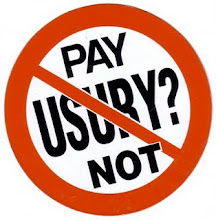TREVISO, Italy —
On New Year’s Eve,
Antonio Tamiozzo, 53, hanged himself in the warehouse of his construction
business near Vicenza, after several debtors did not pay what they owed
him.
Three weeks earlier, Giovanni Schiavon, 59, a contractor, shot himself in the head at the headquarters of his debt-ridden construction company on the outskirts of Padua. As he faced the bleak prospect of ordering Christmas layoffs at his family firm of two generations, he wrote a last message: “Sorry, I cannot take it anymore.”
The economic downturn that has shaken Europe for the last three years has also swept away the foundations of once-sturdy lives, leading to an alarming spike in suicide rates. Especially in the most fragile nations like Greece, Ireland and Italy, small-business owners and entrepreneurs are increasingly taking their own lives in a phenomenon some European newspapers have started calling “suicide by economic crisis.”
Many, like Mr. Tamiozzo and Mr. Schiavon, have died in obscurity. Others, like the desperate 77-year-old retiree who shot himself outside the Greek Parliament on April 4, have turned their personal despair into dramatic public expressions of anger at the leaders who have failed to soften the blows of the crisis.
A complete picture of the phenomenon across Europe is elusive, as some countries lag in reporting statistics and coroners are loath to classify deaths as suicides, to protect surviving family members. But it is clear that countries on the front line of the economic crisis are suffering the worst, and that suicides among men have increased the most.
In Greece, the suicide rate among men increased more than 24 percent from 2007 to 2009, government statistics show. In Ireland during the same period, suicides among men rose more than 16 percent. In Italy, suicides motivated by economic difficulties have increased 52 percent, to 187 in 2010 — the most recent year for which statistics were available — from 123 in 2005.
Researchers say the trend has intensified this year as government austerity measures took hold and compounded the hardships for many. While suicides often have many complex causes, researchers have found that severe economic stress corresponds to higher suicide rates.
“Financial crisis puts the lives of ordinary people at risk, but much more dangerous is when there are radical cuts to social protection,” said David Stuckler, a sociologist at the University of Cambridge, who led a study published in The Lancet that found a sharp rise in suicides across Europe, particularly in seriously affected countries like Greece and Ireland from 2007 to 2009, years that coincided with the downturn.
“Austerity can turn a crisis into an epidemic,” Mr. Stuckler added.
Veneto, a region that was the engine of Italy’s economic growth in the 1990s, has been especially hard hit. In this part of the country, which includes the cities of Treviso, Vicenza and Padua, more than 30 small-business people have committed suicide in the last three years for reasons tied to their work as the area has been whipsawed by global trends including a drop in industrial orders, competition from China and tight bank credit.
Though the phenomenon has been particularly acute in the region, it has recently spread to Bologna, Catania and Rome.
In Rome this month, Mario Frasacco, 59, whose company made aluminum fixtures, killed himself, much to the shock of Rome’s small-business association, where he had been a board member. Other members were surprised when he suddenly canceled a business trip with them to Dubai, in the United Arab Emirates, scheduled for May.
“Now, unfortunately, we sadly understand the probable reason why,” Erino Colombi, the association’s president, said in a statement. The association has organized a candlelight vigil on Wednesday to honor the victims of the economic crisis in Rome.
In Ireland, the phenomenon has been linked to what some therapists call Celtic Tiger depression, the period after 2008 characterized by an influx of middle-aged male patients who complained about sleeplessness and a lack of appetite in the aftermath of that nation’s destructive boom-and-bust real estate market.
To search for answers, researchers for the National Suicide Research Foundation in Cork interviewed surviving relatives of 190 people who committed suicide in County Cork during the turbulent period from 2008 to March 2011.



0 Comments:
Post a Comment
<< Home